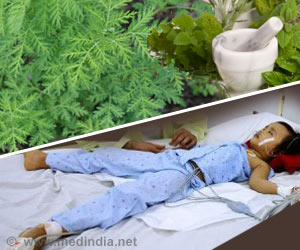
Pre-erythrocytic vaccines (PEVs) aim to reduce the chances that a person will be infected when bitten by a disease-carrying mosquito. Blood-stage vaccines (BSVs) do not block infection but try to reduce the level of disease severity and the number of fatalities. Transmission-blocking vaccines (TBVs) do not protect vaccinated individuals against infection or illness, but prevent mosquitoes from spreading the disease to others after biting a vaccinated person.
Researchers found that the combination of treated bed nets and TBV vaccines achieves the most efficient control, resulting in fewer cases of malaria while increasing the probability of eliminating the disease. On the contrary, both BSV and PEV malaria vaccines, when combined with bed nets, actually increased the number of malaria cases seen in the modeling study. Interactions between the bed nets and BSV and PEV vaccines reduced levels of natural immunity in the population, increasing morbidity in older age classes.
The study will appear online in Proceedings of the National Academy of Sciences.
Source-Medindia













